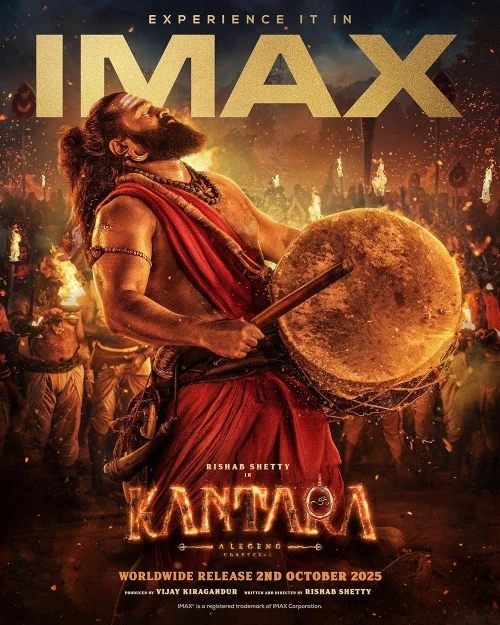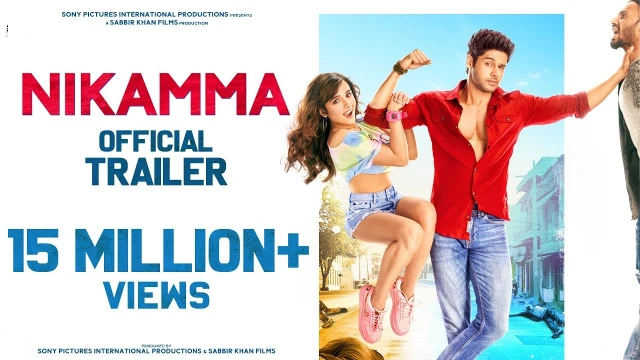Madam Chief Minister Movie Review: Richa Chadha’s Bold Political Drama
🌟 Introduction to Madam Chief Minister Movie
Madam Chief Minister is a bold political drama that tells the story of a woman rising from an oppressed community to the highest seat of power. Released in 2021, it stars Richa Chadha and is directed by Subhash Kapoor. The film blends fiction with the harsh realities of caste politics in India, which is both its strength and the source of controversy.
At its core, Madam Chief Minister is about courage, determination, and resilience. It follows a young Dalit woman who breaks through centuries of discrimination to become the Chief Minister. Set against the backdrop of Uttar Pradesh’s deeply rooted caste system, it shows the challenges and harshness of political survival.
The film’s bold approach has also drawn criticism. Some critics and activists say it misrepresents and oversimplifies the Dalit struggle. Still, it succeeds in sparking important conversations about caste, gender, and politics in Indian cinema.
🎬 Plot Overview of Madam Chief Minister Movie
The story centers on Tara, played by Richa Chadha, who rises from extreme poverty to political power. Living in a Dalit community where discrimination is common and opportunities are rare, Tara refuses to accept her limits.
As she steps into politics, Tara faces betrayals, power struggles, and manipulation, all while holding on to her dream of making a difference. The film shows that Indian politics is not just about ideals but also about compromises and survival.
The plot focuses on power struggles, caste conflicts, and Tara’s transformation from an idealist to a practical leader. Although inspired by real-life figures, the story is fictional, blending realism and drama to keep the audience engaged. Some feel it doesn’t fully capture the depth of grassroots struggles.
👩⚖️ Character Analysis in Madam Chief Minister Movie
The characters reflect the harsh realities of Indian politics. Tara is a fiery, fearless leader who takes risks. Her journey from rebel to powerful politician shows different sides of ambition. Richa Chadha brings intensity and conviction, making Tara both relatable and formidable.
Supporting roles add depth too. Saurabh Shukla plays a seasoned politician guiding Tara through the chaos of power. Manav Kaul’s character shows the opportunistic and flexible side of politics. Together, these roles highlight the manipulation, betrayal, and constant strategy involved.
The film relies on character-driven storytelling, with each person shaping Tara’s path. Some critics say the supporting characters feel stereotypical, but overall, the character work reflects the complexity of political alliances and rivalries.
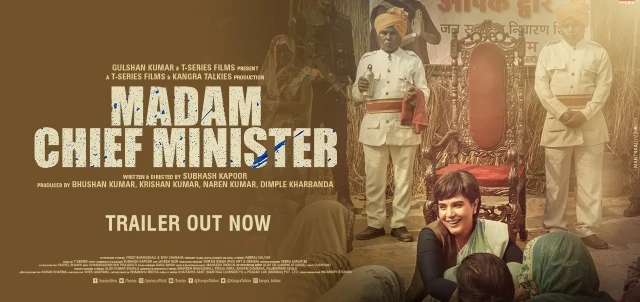
🎭 Performances in Madam Chief Minister Movie
The performances stand out, especially Richa Chadha’s. Known for her range, she brings grit, determination, and raw energy to Tara. Her body language and delivery capture the spirit of a woman fighting against the odds.
Saurabh Shukla skillfully portrays a layered political figure, adding depth through his mentor role. Manav Kaul convincingly plays a cunning, manipulative politician. Together, the cast keeps the acting strong throughout.
However, some critics feel the script limits the actors’ potential. While the performances are powerful, the screenplay sometimes holds them back. Still, the acting is one of the film’s strongest points and makes it memorable.
🎥 Direction & Cinematic Style of Madam Chief Minister Movie
Directed by Subhash Kapoor, known for political and satirical films, Madam Chief Minister balances realism with drama. The story moves steadily, keeping viewers engaged in the political drama.
The cinematography captures the earthy feel of Uttar Pradesh’s political scene, showing rural areas, crowded rallies, and intense assembly moments. This raw, rustic look adds authenticity. The music and score enhance the emotional and dramatic moments.
Though gripping overall, some scenes feel rushed or too simple, especially when handling sensitive caste topics. Still, the film’s style keeps it accessible while tackling complex social issues.
📰 Controversies & Public Reactions to Madam Chief Minister Movie
The film faced controversy from the start. Its poster, showing Richa Chadha holding a broom, sparked backlash for reinforcing caste stereotypes. Many Dalit activists felt the film exploited their struggles without genuine representation, especially since the director and lead actors are not from the Dalit community.
Public response was mixed. Some praised the film for boldly addressing caste politics, while others found it insensitive and shallow. Critics argued it simplified complex issues, losing the true experience of Dalit life. Meanwhile, viewers unfamiliar with these struggles found it eye-opening and impactful.
The controversy brought more attention to the film, sparking debates on representation, sensitivity, and filmmakers’ responsibilities when portraying marginalized groups. Madam Chief Minister became more than just a movie—it turned into a cultural conversation about caste, politics, and cinema’s role in telling these stories.
🎞️ Cinematic Themes in Madam Chief Minister Movie
One of the strongest points of Madam Chief Minister is how it boldly tackles complex themes. The film directly addresses caste politics, a topic Bollywood usually avoids. Through Tara’s story, it shows the challenges faced by Dalit communities and their fight for dignity and equality. Tara’s rise from a marginalized background to Chief Minister is symbolic and highlights the strength of those often ignored by society.
Another important theme is gender and women’s resilience in politics. Tara not only faces caste discrimination but also patriarchal attitudes. Her male colleagues doubt and betray her, yet she stands firm with intelligence and strength. This double struggle against caste and gender bias makes her story very powerful. The film shows how women, especially from oppressed groups, have to work twice as hard for respect and power.
The movie also explores ambition and its consequences. Tara begins as a rebellious idealist wanting to uplift her people, but as she climbs the political ladder, she must make compromises, sometimes working with those she once opposed. Madam Chief Minister shows the moral challenges leaders face: stay idealistic and risk losing power, or be pragmatic and gain influence. This adds depth and makes viewers think about the cost of leadership.
🎶 Music & Soundtrack of Madam Chief Minister Movie
The music in Madam Chief Minister may not stand out at first, but it plays a big role in setting the mood. Composed by Mangesh Dhakde, the background score is earthy and tense, fitting the film’s rural setting. It’s not flashy or commercial but supports the story well. For example, during tense political scenes, the music builds drama without overshadowing the actors.
The film has only a few songs, placed carefully to move the story forward rather than break the mood. The songs have a rustic feel, using folk instruments and rhythms that match the North Indian political backdrop. Unlike many Bollywood films with item songs or romantic numbers, this movie keeps its music simple and grounded.
The sound design is also notable. Crowd chants, rally noises, and the chaos of political meetings feel real thanks to subtle sound effects. This helps the audience feel like they’re part of the political environment. While it didn’t produce hit songs, the music adds to the film’s authenticity and immersion. For a heavy political story, this minimal approach worked well.
📢 Social & Political Impact of Madam Chief Minister Movie
Madam Chief Minister became more than just a film when it was released. It sparked public debate because it openly dealt with caste issues, which many mainstream films avoid. Whether it succeeded fully or not, it definitely started important conversations about caste representation in cinema.
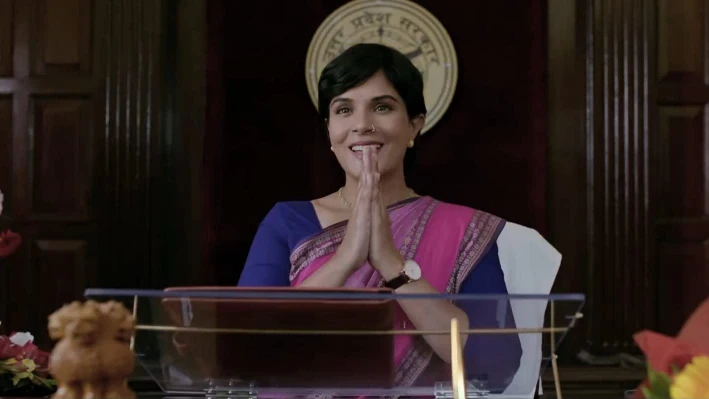
Politically, the film sheds light on the struggles marginalized leaders face in power. Even after becoming Chief Minister, Tara deals with resistance, scrutiny, and prejudice. This led to discussions about real-life Dalit leaders in Indian politics. The film shows how cinema can influence political talks.
Socially, the controversy over the film’s poster and its portrayal of Dalit identity caused intense debates. Some argued Bollywood should include more authentic voices from marginalized groups, while others said the film opened important conversations despite flaws. No matter the views, the fact that Madam Chief Minister was talked about in news, schools, and online shows its social impact.
🎥 Comparison with Similar Political Dramas
Madam Chief Minister invites comparisons with other Indian political dramas. Films like Rajneeti (2010) focus on power struggles within political families, which is a different angle. Madam Chief Minister offers a fresh story of someone rising from poverty and oppression, giving a new perspective in this genre.
The web series Maharani (2021) also centers on a woman leader in Bihar. While Maharani explores politics slowly over many episodes, Madam Chief Minister tells its story in two hours. This makes the movie faster paced but less detailed. Still, it deserves credit for bringing this tough subject to the big screen when many avoid it.
Globally, it can be compared to The Iron Lady (2011), about Margaret Thatcher as Britain’s first female Prime Minister. Both films show women breaking into male-dominated politics. Thatcher’s challenges were about class and gender; Tara’s are about caste and gender. This shows Madam Chief Minister fits into a global tradition of stories about underdog leaders.
🎬 Box Office Performance of Movie
Commercially, Madam Chief Minister faced many challenges. Released in January 2021, theaters were still recovering from the pandemic, and audience turnout was low. Controversies also hurt its market appeal. As a result, its box office numbers were modest and below usual Bollywood hits.
However, the film found new life on streaming platforms. Political dramas often attract niche viewers, and Madam Chief Minister reached those who prefer thoughtful cinema over typical blockbusters. Streaming allowed more people to watch it at their own pace, growing discussions beyond box office results.
This shows not all films aim only for commercial success. Some want to spark dialogue and cultural impact. In this way, Madam Chief Minister succeeded beyond what ticket sales show. Its role in classrooms and social justice talks proves it has a lasting influence.
🏆 Legacy & Final Thoughts on Madam Chief Minister
The real legacy of Madam Chief Minister is its boldness. Bollywood rarely deals deeply with caste issues, and this film at least tried to do so on a mainstream stage. It may not be perfect, but it brought discussions about caste, gender, and politics into homes that might not have talked about them before. That’s a big achievement.
Richa Chadha’s performance is the film’s highlight. She plays Tara with fire and determination. Critics agree she carried the film, showing her talent for strong, unconventional roles. Subhash Kapoor’s direction got mixed reviews, but his mix of realism and entertainment gave the movie a unique feel.
Looking back, Madam Chief Minister will be remembered as a controversial but important political drama. It has flaws—some say it’s too simple or insensitive—but its ambition can’t be ignored. It dared to cover topics Bollywood often avoids. Over time, it may be seen as a cultural marker of India’s changing conversation about caste and power.
❓ Expanded FAQ Section for Madam Chief Minister
1. What is movie about?
Madam Chief Minister is a political drama about Tara, a young woman from a marginalized Dalit community who becomes Chief Minister of Uttar Pradesh. It shows her fight against caste discrimination, patriarchal norms, and the tough decisions she makes in politics. Unlike many Bollywood films, it focuses on the harsh realities of leadership rather than glamour or romance. The film highlights how ambition and resilience can push a marginalized person to power, while also questioning what is sacrificed along the way.
2. Who directed movie?
Subhash Kapoor directed the film. He is known for socially aware movies like Jolly LLB. Kapoor blends realism with drama to create a film that feels both cinematic and true to political realities. His direction was praised for keeping the story engaging, though some criticized him for oversimplifying sensitive topics. He aimed to balance entertainment with social commentary, making the film a conversation starter, even if not everyone agreed with his choices.
3. Who plays the lead role in Madam Chief Minister ?
Richa Chadha plays Tara, the lead character. Her performance is widely seen as the film’s strongest point. Known for powerful roles in movies like Masaan and Fukrey, Richa brings intensity and depth to Tara. She shows her as both inspiring and flawed, making the character believable. Critics agree that without Richa Chadha, the film wouldn’t have had the same impact, as she carries the story.
4. Is based on a true story?
The film is fictional but is inspired by real political figures, especially Mayawati, the former Chief Minister of Uttar Pradesh. Tara’s background and rise mirror some real-life struggles. However, the filmmakers say it’s not a biopic but a fictional story set in a familiar political world. This mix lets the film explore sensitive themes without sticking to one person’s life, though some critics feel it borrows heavily from reality.
5. Why was movie controversial?
The controversy started with the film’s poster, showing Richa Chadha holding a broom, a symbol tied to caste stereotypes. Many Dalit activists felt this reinforced harmful images rather than empowered representation. There was also criticism because neither the director nor the lead actress belong to the Dalit community, raising questions about authentic storytelling. Some defended the film as raising awareness, while others accused it of exploiting Dalit issues without real representation. The controversy overshadowed the release but also increased its visibility.
6. What are the main themes of movie?
The main themes include caste oppression, the ambition of marginalized people, gender inequality, and moral compromises in politics. The film focuses on resilience and determination, showing how someone from an oppressed group can challenge systemic barriers. It also questions whether true social justice is possible in a corrupt political system. By combining caste and gender issues, the movie tells a raw and relevant story about Indian society.
7. How was the performance of Richa Chadha in movie?
Richa Chadha’s performance is seen as one of the best parts of the film. She fully embodies Tara, showing her as bold, unafraid, and driven. Her delivery and physical presence make the character strong and convincing. Critics praised her for carrying the film, making her the heart of the story. Even when the script limits her, her acting keeps the film memorable and powerful.
8. Was Madam Chief Minister a box office hit?
No, the film struggled at the box office. It released during the pandemic when fewer people were going to theaters. The controversy around its poster and issues of representation also turned some viewers away. Political dramas usually appeal to a smaller audience compared to big commercial films. However, it gained more viewers on streaming platforms, where people could watch it at their own pace. In the long run, its cultural importance outweighed its financial results.
9. Where can I watch Madam Chief Minister movie now?
After theaters, Madam Chief Minister was released on some streaming services, making it available to a wider audience. Availability depends on your region, but many platforms featuring Indian films include it. Watching online lets viewers understand its themes better and revisit important scenes. Streaming helped the film reach more people beyond its modest box office run.
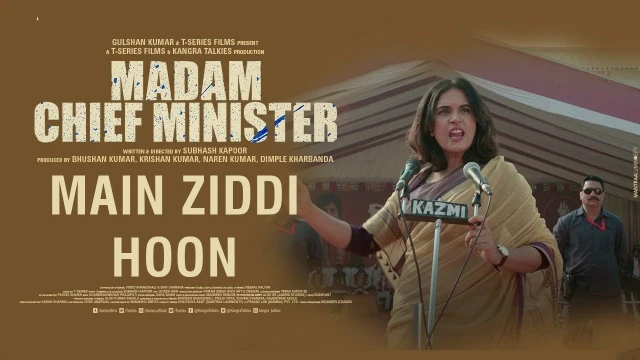
10. What is the legacy of Madam Chief Minister movie?
Its legacy is complex but meaningful. The film is a bold attempt to bring caste and gender issues to mainstream cinema. Though it faced criticism for insensitivity, it sparked important conversations Bollywood usually avoids. Richa Chadha’s role is iconic, and the debates it started about representation will influence future filmmakers. Madam Chief Minister may not be a blockbuster, but it stands as a turning point in how Indian cinema tells political and social stories.

